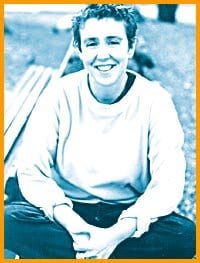A judge might have declared the police raid on the Pussy Palace “shocked the community” and brought the justice system into “disrepute,” but the Toronto Police Service isn’t taking the ruling very seriously.
They won’t even say that such a fiasco – sending male officers to a women-only sex event – won’t happen again.
“I think the circumstances were unique,” says Staff Supt Bill Blair of the visit by five male officers to the September 2000 Pussy Palace.
Blair is one of the few senior officers answering questions about the Jan 31 decision from Ontario Court Judge Peter Hryn. Hryn dismissed liquor charges against bathhouse organizers JP Hornick and Rachel Aitcheson because their constitutional rights were violated by the investigating male officers.
Toronto Police Chief Julian Fantino will not talk about the decision. Chief media officer Staff Insp Bruce Smollet cites a human rights complaint filed by the bathhouse committee against the police as the reason for the chief’s silence.
Smollet says the ruling has the effect of “education” for officers, rather than being binding on them.
“Our policy hasn’t changed,” he says. “We take steps now and we always should have taken steps to get women to do these things. But if push comes to shove, we do what we have to do.”
Smollet says he doesn’t agree with Hyrn’s comparing the Pussy Palace inspection to a strip search, but he admits he’s not a legal expert.
“I know the judge used that term [strip search]. There’s not a legal effect of him saying that, but it has brought the policy to the forefront,” says Smollet.
The service’s head legal expert, Jerry Wiley, hasn’t even seen the ruling yet. He advises if and how court rulings affect how officers do their jobs.
“I’m expecting to get the judgment one of these days, but I haven’t yet,” says Wiley.
Blair says it’s the police’s responsibility to do inspections on Special Occasion Liquor permits, like the one held by the Women’s Bathhouse Committee that night. Though Blair wouldn’t guarantee such an action wouldn’t happen again, he says it would be “prudent and appropriate” to get female officers to do those inspections in the future.
Norm Gardner, chair of the Toronto Police Services Board, isn’t so sure. He guarantees nothing.
“I think it would be preferable to send female officers, but the information I have is that we won’t have enough women to have one in every platoon,” says Gardner.
Hyrn stated that the service’s “discriminatory hiring practises” were no excuse for not sending female officers to an event where women would be naked or partly clothed. Only 14 percent of the service’s uniform personnel are female. As well, Dave Wilson, the officer who led the raid, testified that he didn’t even bother to see if female officers were available to make the inspection. Wilson is currently in another unit.
Blair says Hyrn’s highly-critical ruling hasn’t embarrassed the police.
“My concern is not whether anybody’s embarrassed, but whether it hurt the relationship between the police and the [gay and lesbian] community,” says Blair. “This was not a high point in the relationship.”
While senior command does non-committal damage control, there seems to be more – if vague – activity on the ground.
“Change is inevitable,” says Const Judy Nosworthy, the police liaison officer for the gay, bi, lesbian and trans community. “It’s a matter of directing change in a mutually appropriate manner, but until then it’s business as usual.”
The police liaison committee on gay, lesbian, bi and trans issues, set up by Fantino last spring, has been oddly silent on the Pussy Palace drama. Co-chair Nicky Casseres says there’s been lots of talk going on behind the scenes.
“It can’t be business as usual,” she says. “The whole thing has caused a rift between our community and the police.”
Casseres says the police are more willing to listen to the committee’s concerns in the wake of Hryn’s ruling.
“I think it made them look at themselves,” she says. “We’ve been able to tell them, ‘Look at what the judge said, there are problems inside the force.’ The feeling is that things are going to move.”
Casseres says she’s hoping the police will set deadlines to have staff diversity training on homo issues.
In the long run, she says the Toronto service is hiring a lot of new people, who are better trained in being sensitive to gay and lesbian issues. She’s says the committee is also pressuring police to create an environment where it’s easier for queer officers to come out.
* with files from Mordecai Drache


 Why you can trust Xtra
Why you can trust Xtra


